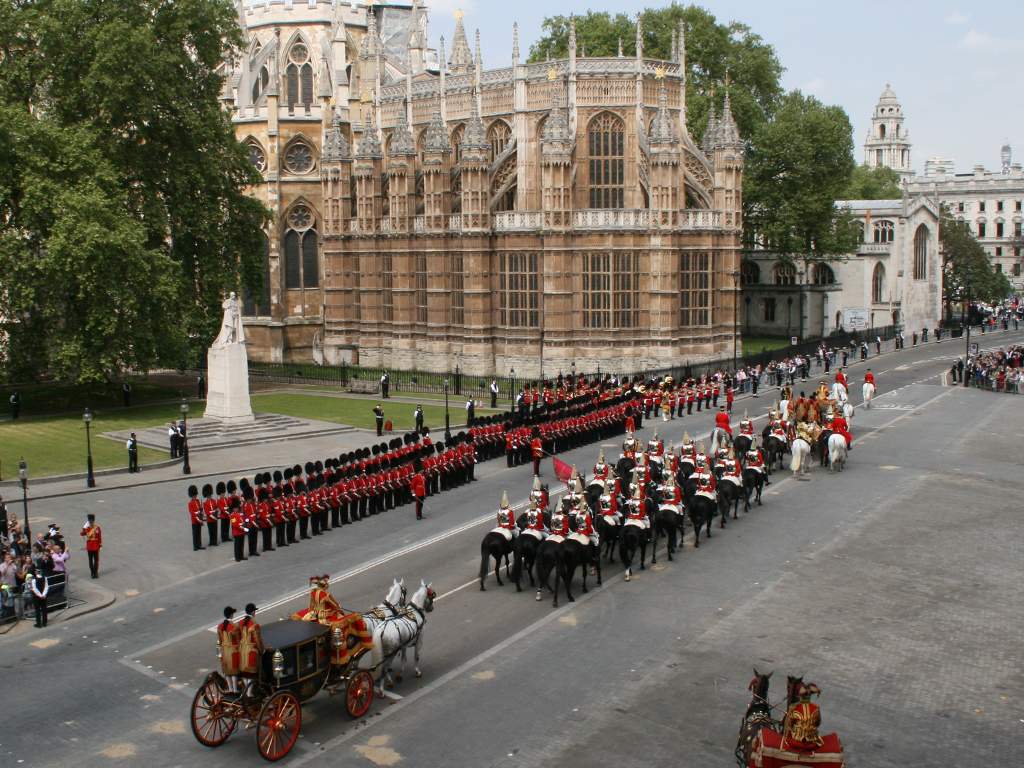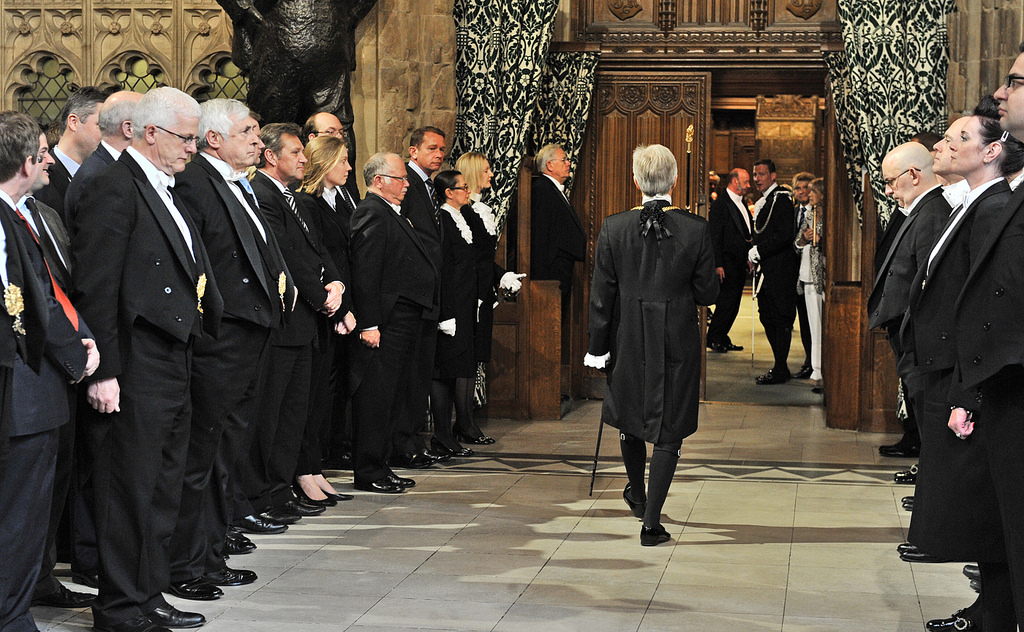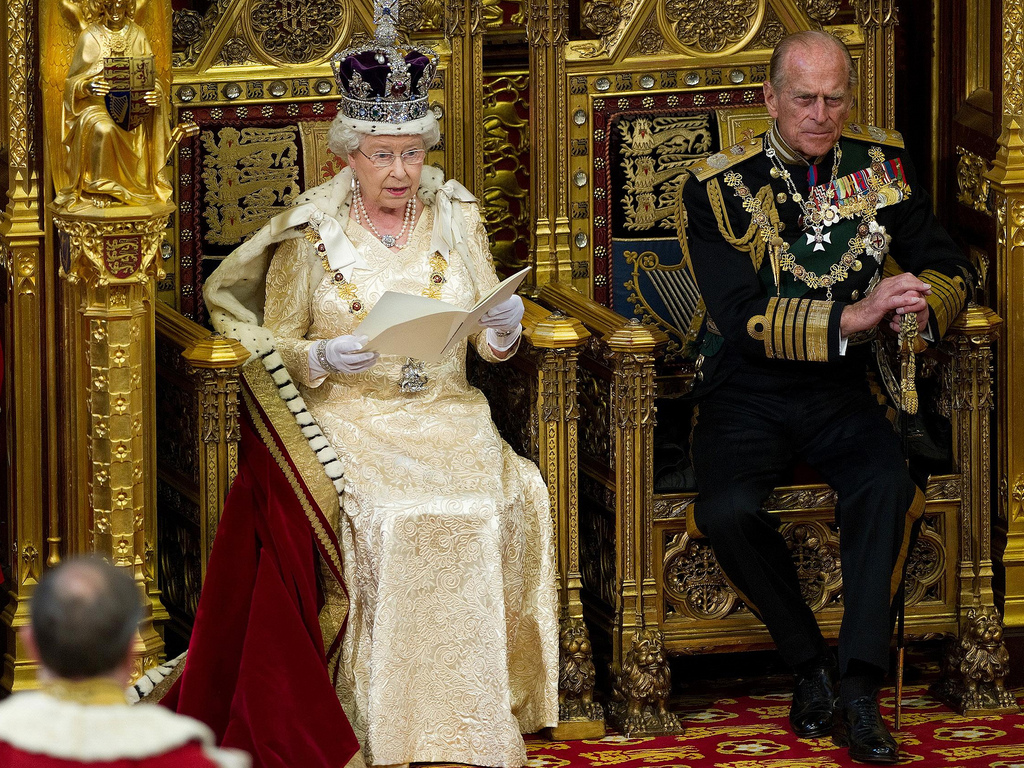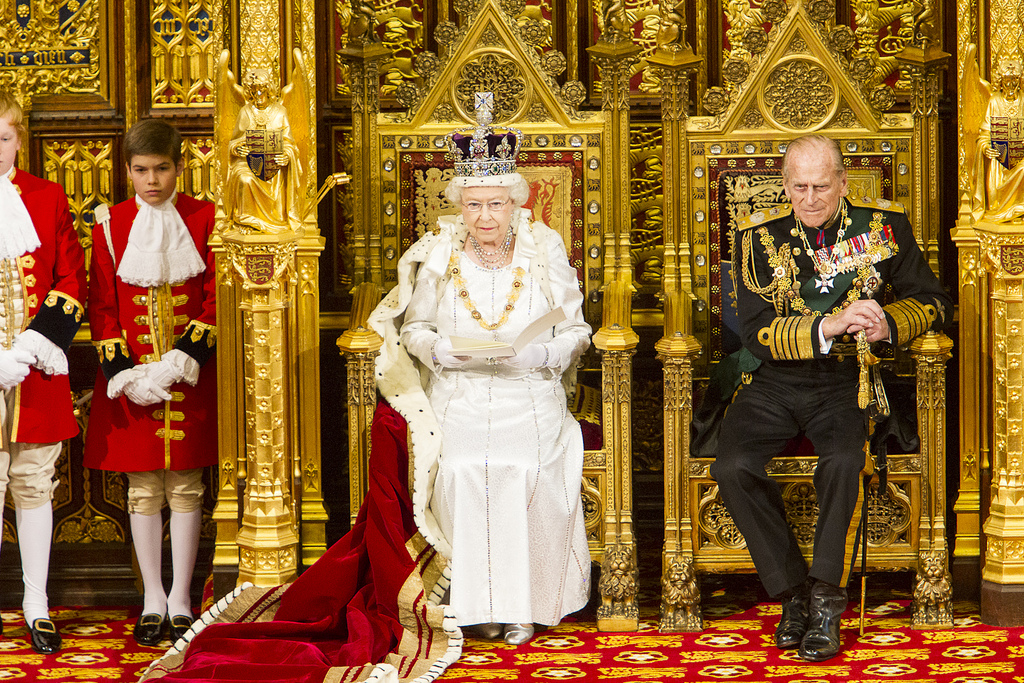At today’s State Opening of Parliament, the Queen’s Speech once again referred to the Government’s plans to repeal the Human Rights Act and replace it with a Bill of Rights.
The Queen said that:
Proposals will be brought forward for a British Bill of Rights.
Taken on its own, this phrase was one word less than the Queen dedicated to the Bill of Rights in her speech last year, where she had stated:
My government will bring forward proposals for a British Bill of Rights.
So perhaps not much has changed. However, this time round the Queen also said:
My ministers will uphold the sovereignty of Parliament and the primacy of the House of Commons
This broad-brush statement may be an attempt by the government to continue expressing the general aim of safeguarding Britain’s sovereignty, without committing to a particular method of doing so. The Sun newspaper reported this morning that a law – referred to as the Sovereignty Bill – which planned to make Parliament ‘supreme over Brussels’ was ditched from the Queen’s Speech last-minute. These statements are the latest developments in the government’s plans to scrap the Human Rights Act and replace it with a British Bill of Rights in order to ‘put Britain first’.
More information on what we know about the British Bill of Rights is in Anna’s post from earlier today.
A bit of background

Parliament is made up of two chambers: the House of Commons and the House of Lords. The Commons is for Members of Parliament (MPs), who are the elected representatives of the people. MPs propose and debate new laws. The Lords are appointed by the Queen on the advice of the Prime Minister. They are not elected but use their expertise to scrutinise proposed policies and hold the Government to account. A new law must be approved in the same form by both Houses before it can become an Act of Parliament.
In its election manifesto, the Government proposed to repeal the Human Rights Act and replace it with a Bill of Rights. Here’s what we know about the proposed Bill of Rights so far.
What happens at the State Opening of Parliament?

The State Opening of Parliament is a ceremony marking the formal beginning of the parliamentary year. The Queen travels to Westminster (where Parliament is situated) and enters the House of Lords. An official known as ‘Black Rod’ is sent to summon MPs from the Commons to hear the Queen’s Speech.
As Black Rod approaches, the door to the House of Commons is slammed in his face, to symbolise the independence of the House of Commons from the sovereign. Black Rod bangs on the door three times (with the ebony rod which gives him his name), the door to the Commons chamber is opened and the MPs follow Black Rod to the House of Lords to hear the Queen’s Speech.
The Queen reads the Speech aloud in the House of Lords. Although the Speech is read by the Queen, it is written by the Government and is essentially an outline of the Government’s agenda and proposed legislation for the coming parliamentary session.
What did the Queen’s Speech say about the Bill of Rights?

As discussed above, we have not learnt anything new from the Queen’s Speech today. The government is pushing forward with British Bill of Rights plans, but the format of the Bill remains unclear. The renewed commitment to Parliamentary sovereignty and the primacy of the House of Commons highlights the government’s main driving forces behind any new human rights laws. They are also perhaps intended to reassert British primacy in a time when our status in the international sphere is uncertain prior to the EU referendum in June.
The proposed Bill of Rights may replace the Human Rights Act, which currently gives effect in UK law to the European Convention on Human Rights. Learn more about the importance of protecting human rights with our 2 minute animation.







